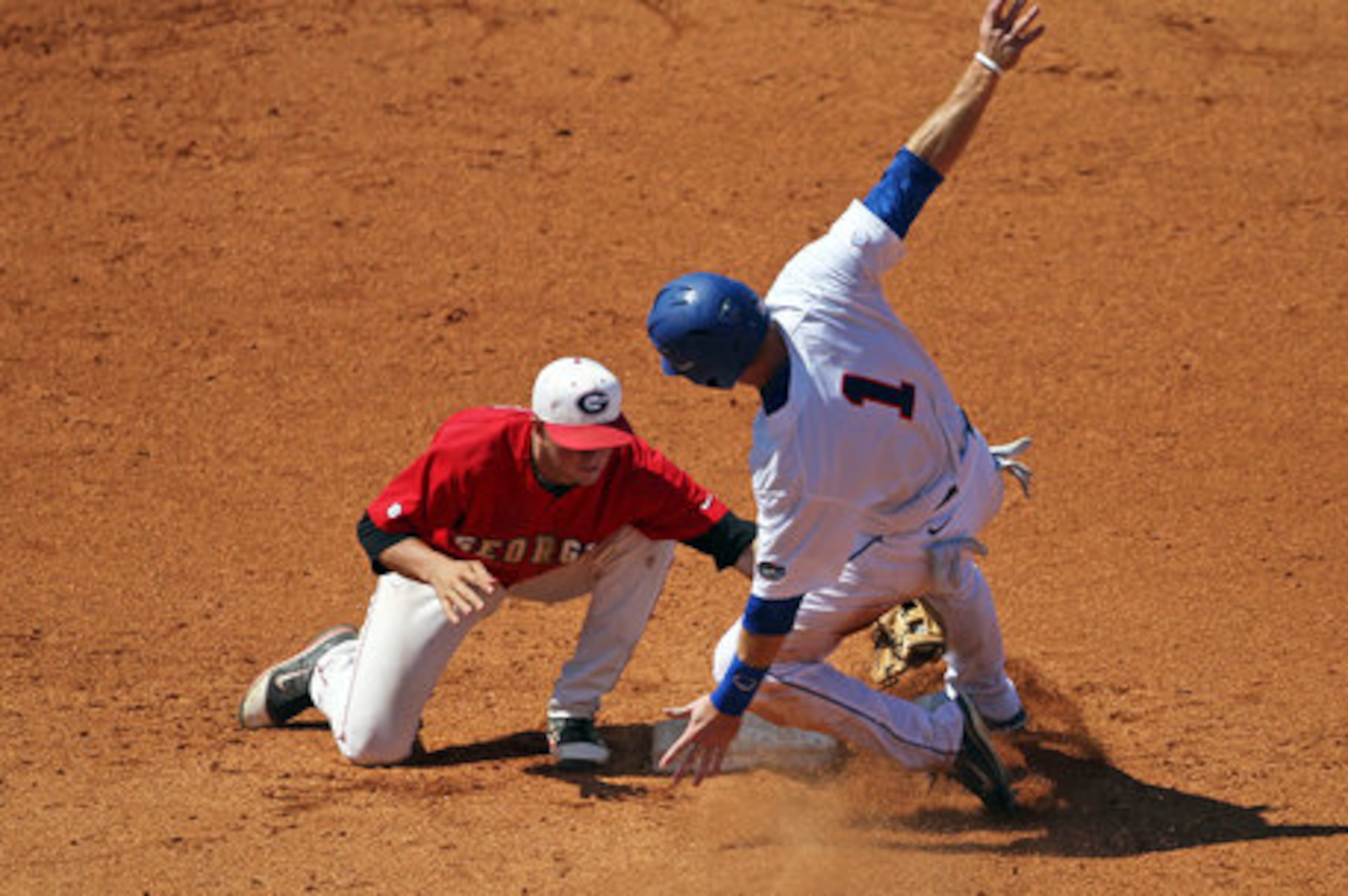Astros’ Altuve Is Providing Outsize Production
By Tyler Kepner
New York Times
The Houston Astros may be the most data-driven organization in baseball, or at least the one most willing to try new ideas. Yet there are no statistical models that would project the smallest player in the majors to be the game’s best hitter.
That is what Jose Altuve is, as measured by batting average. Altuve leads the major leagues, at .339. He leads the majors in hits, and the American League in stolen bases.
Altuve is also 5-foot-6, matching San Diego’s Alexi Amarista as the game’s shortest player, according to Baseball-Reference.com.
“He’s an anomaly,” said David Stearns, the Astros’ assistant general manager. “He’s tough to explain, other than the fact he works as hard or harder than anyone, he’s got freakish hand-eye skills, he loves baseball and he wants to be great.”
The Astros also have a 5-6 Class AA second baseman, Tony Kemp, who was hitting .313 with 37 steals this season, through Monday. Their Class AAA second baseman, Ronald Torreyes, is listed at 5-10, but Stearns said he was much shorter.
Have the Astros discovered a market inefficiency in undersized second basemen? Probably not. More likely, Altuve is an outlier.
Six major leaguers have reached the Hall of Fame as players despite being listed at 5-6 or shorter: Billy Hamilton, Willie Keeler, Rabbit Maranville, Joe Sewell, Hack Wilson and Phil Rizzuto. But none of those players started his career after 1941.
The most prominent position players since then to be listed at 5-6 or shorter include David Eckstein, Rafael Belliard, Freddie Patek and Albie Pearson.
“It’s hard, from a physical standpoint,” said John Mallee, the Astros’ hitting coach. “This is a physical game, and you have to be able to hit the ball hard and drive the ball.”
Leverage comes from height, Mallee explained, and smaller players are often not strong enough to generate the bat speed to hit consistent line drives. Shorter legs may also make it harder to get a quick first step on the bases and in the field.
“But is there a stereotype that unduly casts them as not big-league suitable? Probably,” Stearns said. “You’re still awed by the guys who look the part and fill out the uniform.”
Altuve, 24, signed with the Astros from Venezuela before the 2007 season, when he was 16. He had been rejected from an earlier tryout camp, and signed for only $15,000. All he has done since then is hit: a .327 average in the minors, an All-Star selection in his first full major league season (2012), and now this.
“I think most of the people like the kind of player like Derek Jeter and Alex Rodriguez,” Altuve said. “They’re pretty tall and they can do everything. But as a scout, you have to give credit to a little guy, too. See what they have. Who knows? See what they can bring to the table.”
Altuve, who could become the first Astro to win a batting crown, brings a set of extremes.
Altuve could become the first player to lead his league in batting average, hits and steals since Ichiro Suzuki for Seattle in 2001. He was on pace for 224 hits and 59 steals. Only one player in the last 100 years has reached totals that high in both categories in a single season: Willie Wilson for Kansas City in 1980.
The Astros signed Altuve to a four-year, $12.5 million contract last season, with two club options that could double the value of the deal and keep him in Houston through 2019. Altuve said he wanted another contract after that, and dropped 12 pounds last winter in an effort to stay in top shape. He said he felt more agile and quicker on the bases.
His swing has always been quick. Altuve makes a brief, direct slash to the ball when he swings. Every hitter tries to do this, Mallee said, but in this case, Altuve’s size helps.
“Some guys’ levers are longer, and it’s harder,” Mallee said. “Two hitters can have a straight line, but mine can be a foot and yours can be 2 feet, depending on how long your levers are. Usually the better hitters have the shorter arms and the guys with more power have the longer arms because they have more leverage.”
Collin McHugh, an Astros pitcher, said he and his teammates often joked that Altuve never got jammed because his arms are so short.
“But the truth is, his ability to put the barrel on the ball is like nothing I’ve seen before,” McHugh said. “No matter where the pitch is - in, out, up, down - he has this innate ability to square balls up. I wouldn’t want to face him.”
Intuitively, it would seem that because Altuve has such a small strike zone, he could draw a lot of walks by taking more pitches. But McHugh said that pitchers often press when facing a shorter hitter; by trying too hard to place the ball in the right spot, they make more mistakes in the zone.
Altuve is eager to pounce on those mistakes. He has rediscovered his leg kick this season, which helps him recognize strikes before landing with his front foot. He does not want to let a good pitch go by.
“That’s me,” Altuve said. “I just try to make contact with the ball. It’s obvious that I like to swing the bat. I’m not thinking of taking a lot of pitches. I’m coming up there ready to look for one pitch. This is the big leagues; pitchers throw a lot of strikes. I feel like they attack me. That’s why I go up there and swing.”
Those swings produce big results from a player who stands out more for his production than his size.


